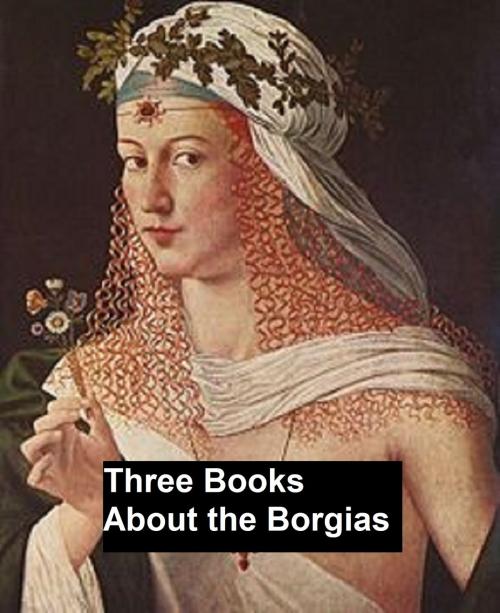| Author: | Ferdinand Gregorvius | ISBN: | 9781455415304 |
| Publisher: | Seltzer Books | Publication: | December 23, 2017 |
| Imprint: | Language: | English |
| Author: | Ferdinand Gregorvius |
| ISBN: | 9781455415304 |
| Publisher: | Seltzer Books |
| Publication: | December 23, 2017 |
| Imprint: | |
| Language: | English |
This file includes: Lucretia Borgia by Ferinand Gregorovius, The Borigas by Alexandre Dumas, and The Prince by Nicolo Machiavelli. According to Wikipedia: "The Borgias, also known as the Borjas, "Borjia," "Borghetti" and "Bourghesse" were a European Papal family of Béarnaise origin with the name stemming from the familial fief seat of Borja belonging to their Aragonese Lords; they became prominent during the Renaissance. The Borgias were patrons of the arts; thanks to their support, artists of the Renaissance could 'spread their wings' and realize their artistic potential. The most brilliant personalities of this era regularly visited their court. The Borgias became prominent in ecclesiastical and political affairs in the 1400s and 1500s. Today they are remembered for their corrupt rule when one of them was Pope. They have been accused of many different crimes, including adultery, simony, theft, rape, bribery, incest, and murder (especially murder by arsenic poisoning[1]). Because of their search for power, they made enemies of other powerful families such as the Medici and the Sforza, as well as the influential Dominican friar Savonarola."
This file includes: Lucretia Borgia by Ferinand Gregorovius, The Borigas by Alexandre Dumas, and The Prince by Nicolo Machiavelli. According to Wikipedia: "The Borgias, also known as the Borjas, "Borjia," "Borghetti" and "Bourghesse" were a European Papal family of Béarnaise origin with the name stemming from the familial fief seat of Borja belonging to their Aragonese Lords; they became prominent during the Renaissance. The Borgias were patrons of the arts; thanks to their support, artists of the Renaissance could 'spread their wings' and realize their artistic potential. The most brilliant personalities of this era regularly visited their court. The Borgias became prominent in ecclesiastical and political affairs in the 1400s and 1500s. Today they are remembered for their corrupt rule when one of them was Pope. They have been accused of many different crimes, including adultery, simony, theft, rape, bribery, incest, and murder (especially murder by arsenic poisoning[1]). Because of their search for power, they made enemies of other powerful families such as the Medici and the Sforza, as well as the influential Dominican friar Savonarola."















